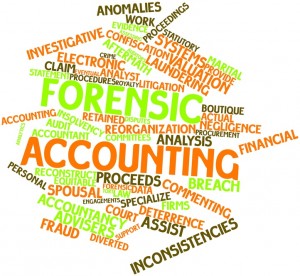
The forensic accounting experts at Laydon and Company combine their knowledge of accounting with investigative skills to both prevent and detect fraud. In addition to being certified public accountants, our professionals are also credentialed as Certified Fraud Examiners (CFE), demonstrating a specialization and focus on forensic accounting and fraud investigations.
We are committed to keeping our clients’ assets safe from fraud and abuse. However, when fraud, theft or embezzlement is suspected, our fraud detection and forensic accounting team has the investigative training to uncover subtle discrepancies that are easily overlooked by untrained eyes.
Fraud Examination
The motivation for a fraud examination varies from client to client. Some clients request an examination to identify internal controls needed to prevent fraud. Others enlist us to gather evidence for a specific purpose to:
• Determine if fraud is occurring
• Support a criminal or civil action
• Terminate a dishonest employee or defend an accused individual
• Support an insurance claim
• Determine if assets or income were hidden by a party to a legal proceeding
Fraud Detection
Evidence of fraud is often hidden in procedural and operations records. Our process starts with a detailed review of an organization’s books, electronic and print files and bank records. It also includes personnel interviews, assessment of internal controls and careful observation of practices, procedures and behaviors that can signal unlawful action.
Our practical, in-depth analysis has a wide variety of applications, including:
• Criminal and civil investigations
• Shareholder and partnership disputes
• Business interruption, property loss and employee dishonesty insurance claims
• Business or employee fraud investigations
• Marital disputes, often focusing on tracing and evaluating assets
• Business economic losses linked to contract disputes, construction claims, expropriations, product liability claims, trademark and patent infringements or breach of non-compete agreements
• Professional negligence investigations
• Mediation and arbitration
Fraud Prevention
Our fraud prevention team assesses the efficiency of existing internal controls – the most important deterrent to most types of occupational fraud. We look for controls that are missing or can be overridden, then make recommendations for improvement. Our list of fraud controls is always changing to reflect the latest advances in technology and information access. It covers a wide range of financial, human resource and management practices, including:
• Limiting access to company mail to prevent unauthorized appropriation of cash receipts
• Limiting access to account receivable records
• Limiting access to payroll systems and records
• Ensuring that electronic or printed bank statements are viewed only by the owner/manager
• Limiting access to inventory, counting it regularly and monitoring gross profit
• Periodically reviewing the vendor list to verify account payables
• Limiting the number of check signers and reviewing supporting documentation
• Accounting for sequences in checks, invoices and other pre-numbered items
• Requiring supporting documentation before approving general journal entries
• Monitoring exception reports of unprocessed transactions
• Monitoring budgets monthly
• Establishing reasonable performance targets
• Performing background checks on all new employees
• Requiring uninterrupted employee vacations and rotating employee responsibilities
• Noting sudden changes in employees’ attitudes, behaviors or lifestyles
• Providing employees with a way to report fraud or abuse anonymously
• Being clear with employees about behavioral expectations
• Taking strong action against individuals who commit fraud
• Conducting business at a high ethical standard
• Obtaining reasonable fidelity bond coverage


